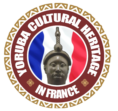Experiencing the Culture & Tradition Of Yoruba people
At the heart of Yoruba culture lies the Yoruba language, a tonal language with a melodious cadence. The language reflects the people's deep sense of identity and is a key vehicle for passing down stories, proverbs, and traditions from one generation to the next.
Understanding Yoruba Culture and Tradition
The Yoruba people, one of the largest ethnic groups in Nigeria and West Africa, have a rich cultural heritage that is deeply rooted in tradition. Their cultural activities play a crucial role in maintaining and celebrating the Yoruba heritage. Festivals, ceremonies, and rituals are common expressions of Yoruba culture, showcasing vibrant dances, music, and colorful attire.
The Yoruba culture is steeped in a system of beliefs that blend the spiritual with the practical. The Yoruba people are known for their devotion to various deities like OLODUMARE, Sango, Esu, Obatala, Oya, Ogun, Oshun,, Olokun to mention a few and their religious practices are a significant part of their daily lives. Traditional beliefs often revolve around the concept of “àse,” a force that represents the power to make things happen. Ancestor veneration is also prevalent, with rituals and ceremonies honoring those who came before.
Yoruba cuisine is diverse and flavorful, reflecting the agricultural abundance of the region. Some staple foods include pounded yam(iyan), amala (yam flour), efo riro (vegetable soup), jollof rice, and various stews with a rich blend of spices. Yoruba people appreciate communal dining and often share meals as a way of fostering community bonds.
The Yoruba language is tonal and has several dialects, with the standard variety being based on the Oyo dialect. The language is widely spoken not only in Nigeria but also in neighboring countries. Yoruba is a key element of cultural identity, and proverbs and idioms are frequently used to convey wisdom, morals, and cultural values.
Masquerades are integral part of Yoruba cultural celebrations. They are elaborate performances where individuals, adorned in intricate costumes and masks, dance to traditional music. Masquerades often represent deities, ancestors, or historical figures and serve various purposes, including entertainment, religious rituals, and conveying moral lessons. Each masquerade has its unique significance, and the performances are accompanied by music, drumming, and chanting.
Yoruba cultural activities encompass a vibrant tapestry of festivals, beliefs, foods, dialects, and masquerades, all contributing to the rich and diverse heritage of the Yoruba people.
